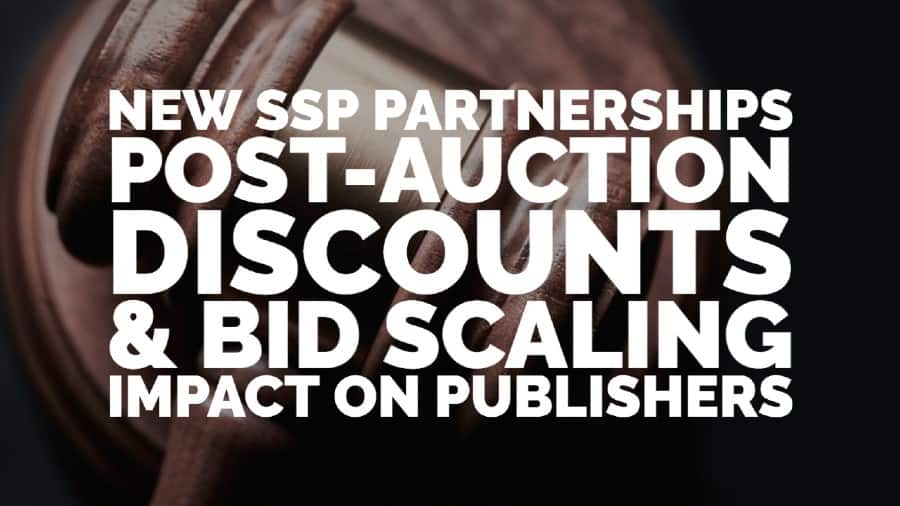Recently news has surfaced that GroupM has partnered with Index Exchange as their preferred vendor. Index Exchange is leveraging their buying power for lower exchange rates or better media rates. GroupM would, in return, focus the majority of their ad spend on Index Exchange.
It might seem like a partnership could raise some flags with regards to transparency and neutrality of such a deal. However, many anticipate a similar trend with other SSPs for formal partnerships between SSPs and agency holding companies.
GroupM wants to focus more on providing their clients with better access to premium publishers. They will be working with a smaller set of suppliers to have better and more transparent relationships with the supply chain.
The Index Exchange-GroupM deal will almost certainly have a negative impact on other SSPs. It’s especially true if GroupM ends up diverting most of their ad spend through Index Exchange.
How will this impact publishers?
Some SSPs are going to start giving post-auction discounts to agencies. Agencies will then be able to pay less than their bid and, as a result, pay publishers less for impressions. Here’s an example: through the SSP, the highest bid at auction could be $5, but then the publisher only gets paid $4.
To reiterate:
-Publishers are getting paid less than what the original bid was.
-The winning bid isn’t necessarily going to the highest bidder.
For some publishers, the idea of post-bid discounts isn’t too alarming, especially those with large traffic volumes. These publishers tend to receive better bids overall, which lessens the impact of post-bid discounts.
On the other hand, post-bid auctions can make real-time analysis a nightmare. These discrepancies go undetected and publishers lose money as a result.
It also takes away some control from the publisher with regards to the auction process.
Either way, overall it seems like an unfair process to publishers, but also advertisers. Advertisers could now lose an auction to agencies who end up paying less than the bid was as it’s a manipulated auction process.
This is another use case why bid scaling is so important. Post-bid discounts are becoming more common, which will further skew the discrepancies between real-time bids and payable revenues for publishers. Bid scaling keeps the bidders honest.
Bid scaling is used to make all bids compete in the auction as an apples-to-apples comparison based on the net amount paid to the publisher. All bid scaling principles are applied to all demand sources equally, and non-discriminately based on that individual bidder’s revenue. Publishers can use MonetizeMore’s PubGuru Header Bidding to scale the bid and ensure that it is more accurate moving forward.
You can find out more about why bid scaling is essential here: https://www.monetizemore.com/blog/bid-scaling-explained/.
What should publishers do?
If you are in partnership with any SSPs that implement post-bid auction discounts, be sure to enable bid scaling through all your properties. Not sure how to do this? MonetizeMore utilizes bid-scaling through our PubGuru Header Bidding wrapper. Sign up to MonetizeMore today!
Kean Graham is the CEO and founder of MonetizeMore & a pioneer in the Adtech Industry. He is the resident expert in Ad Optimization, covering areas like Adsense Optimization,GAM Management, and third-party ad network partnerships. Kean believes in the supremacy of direct publisher deals and holistic optimization as keys to effective and consistent ad revenue increases.
